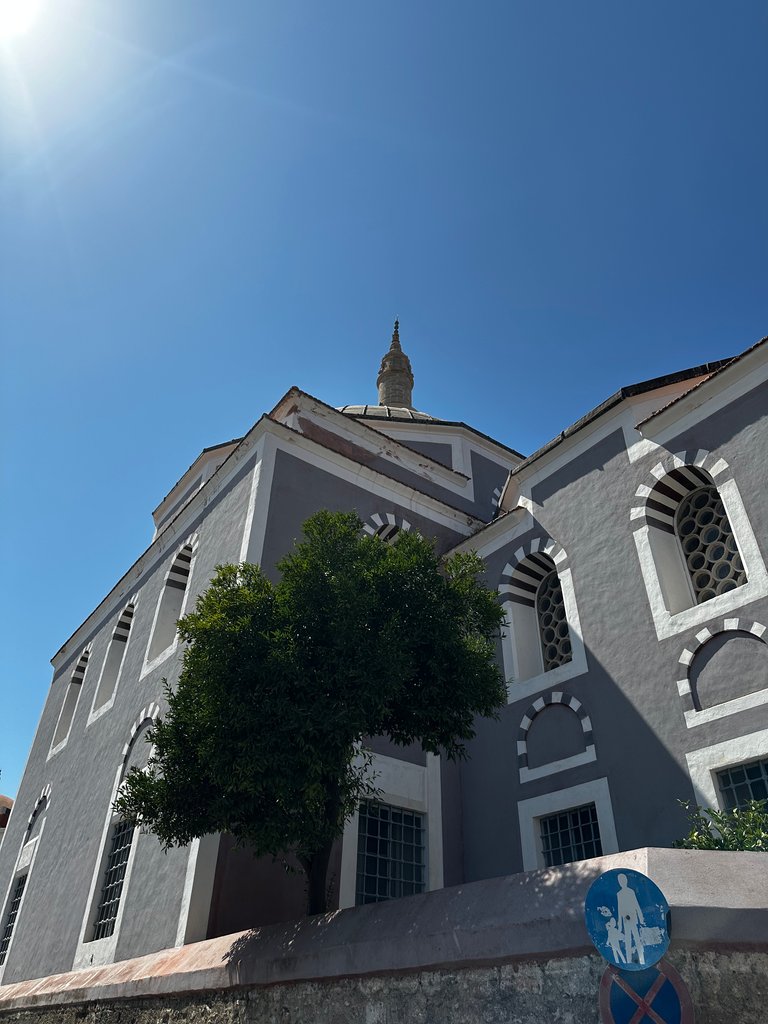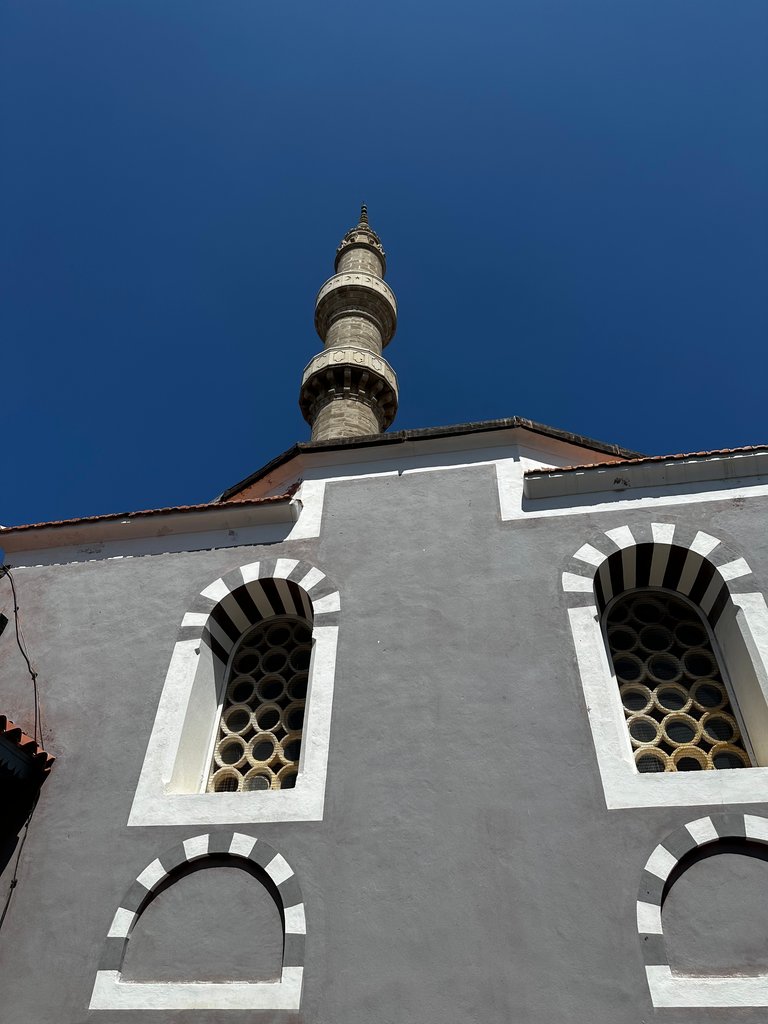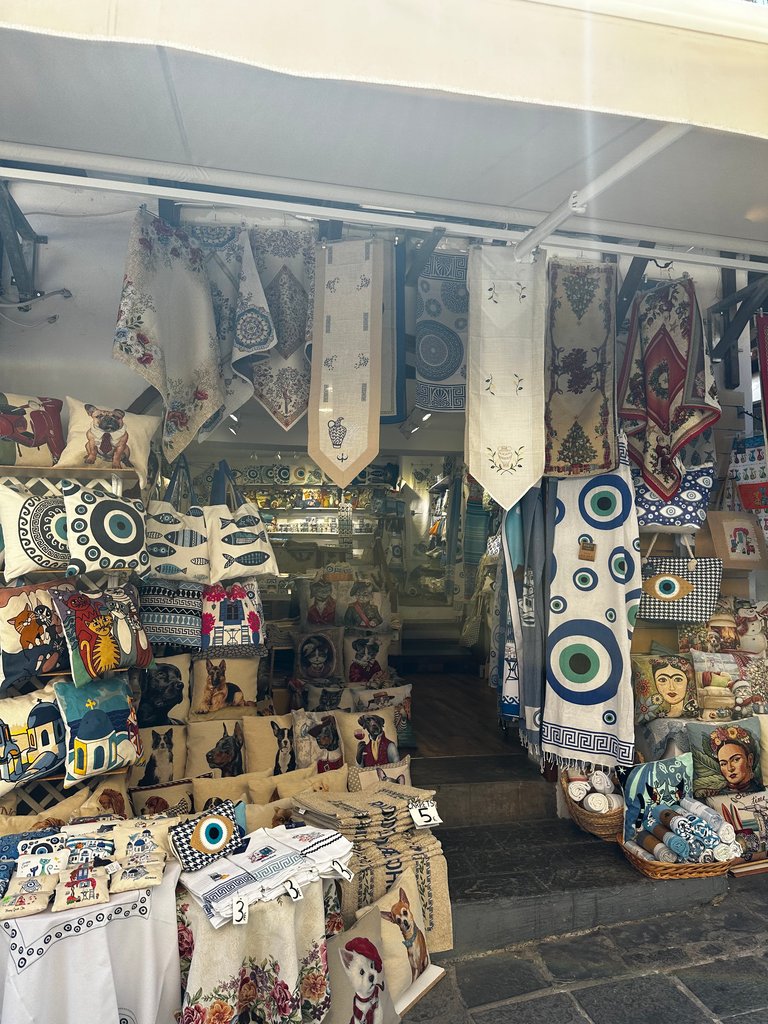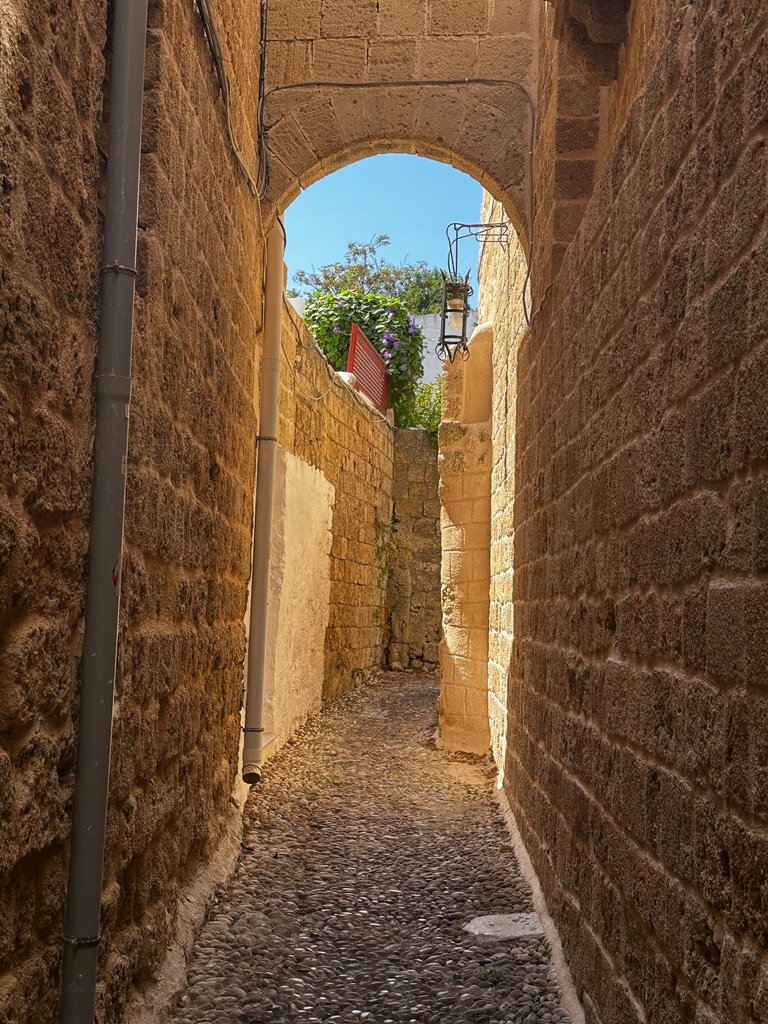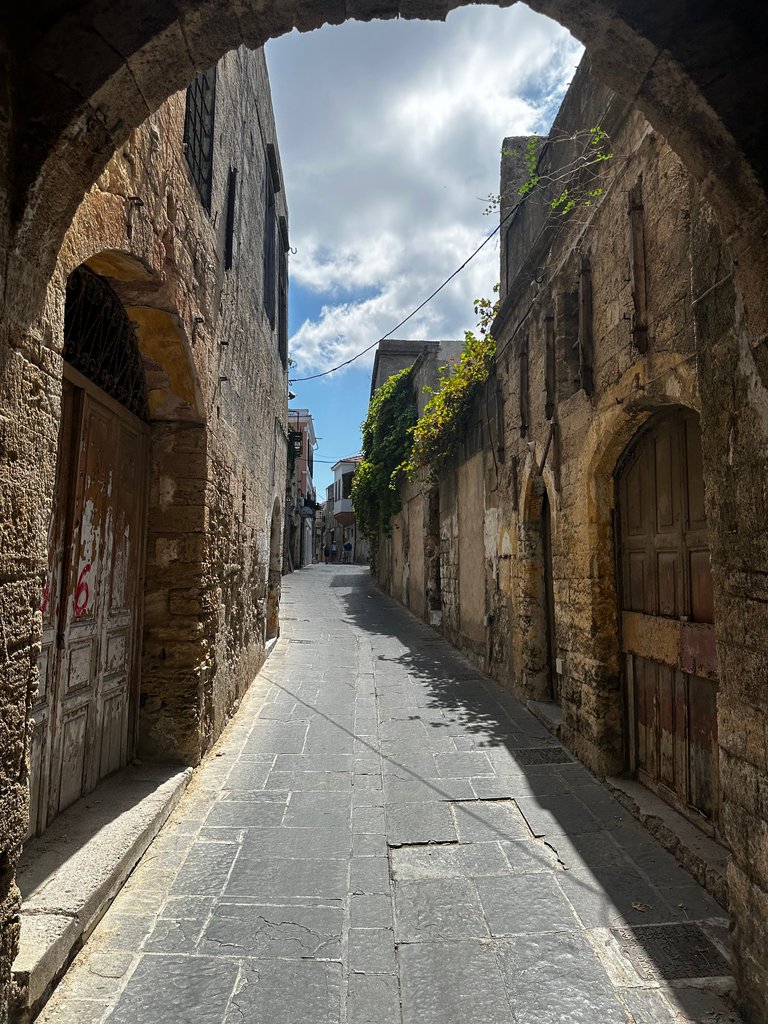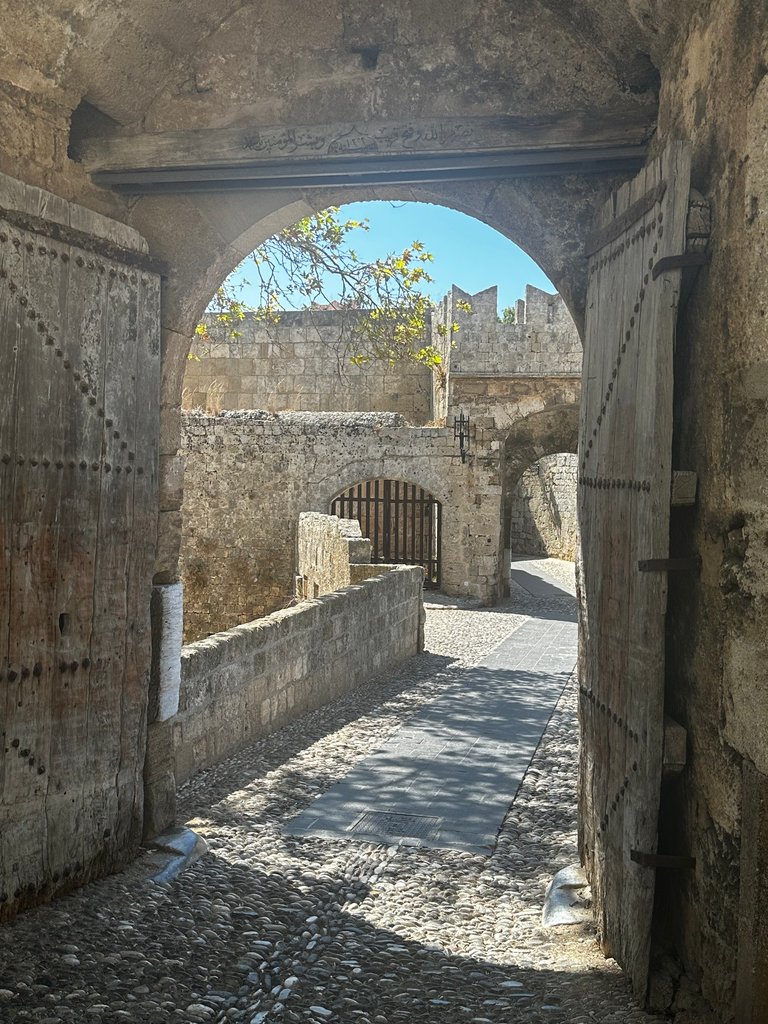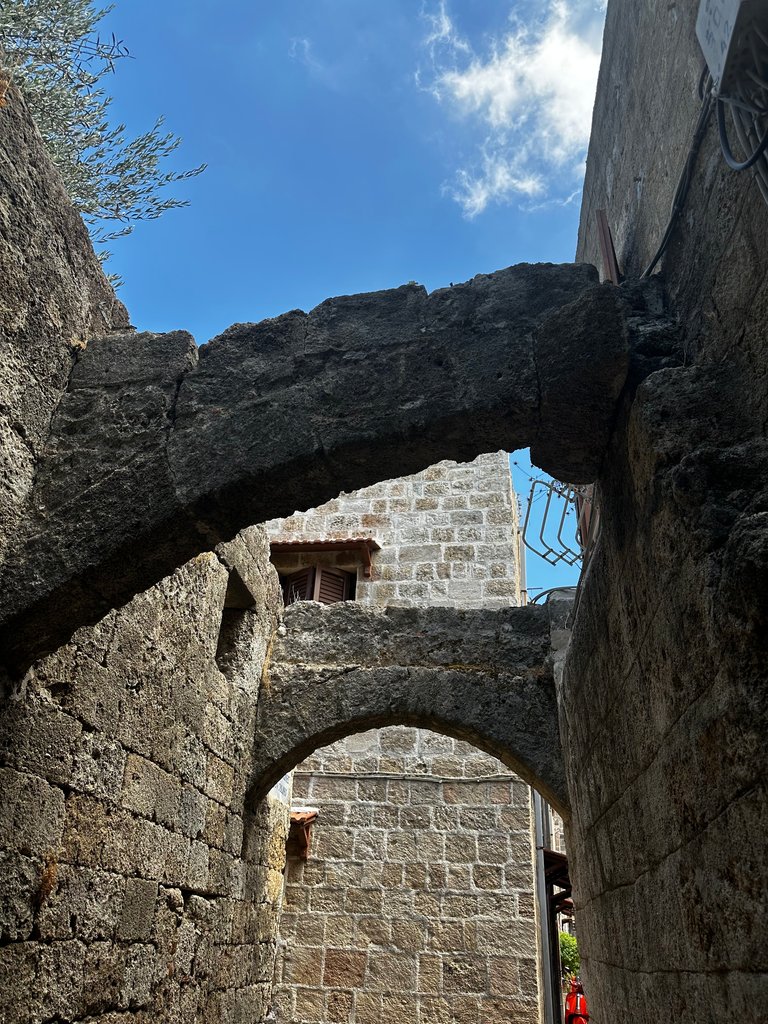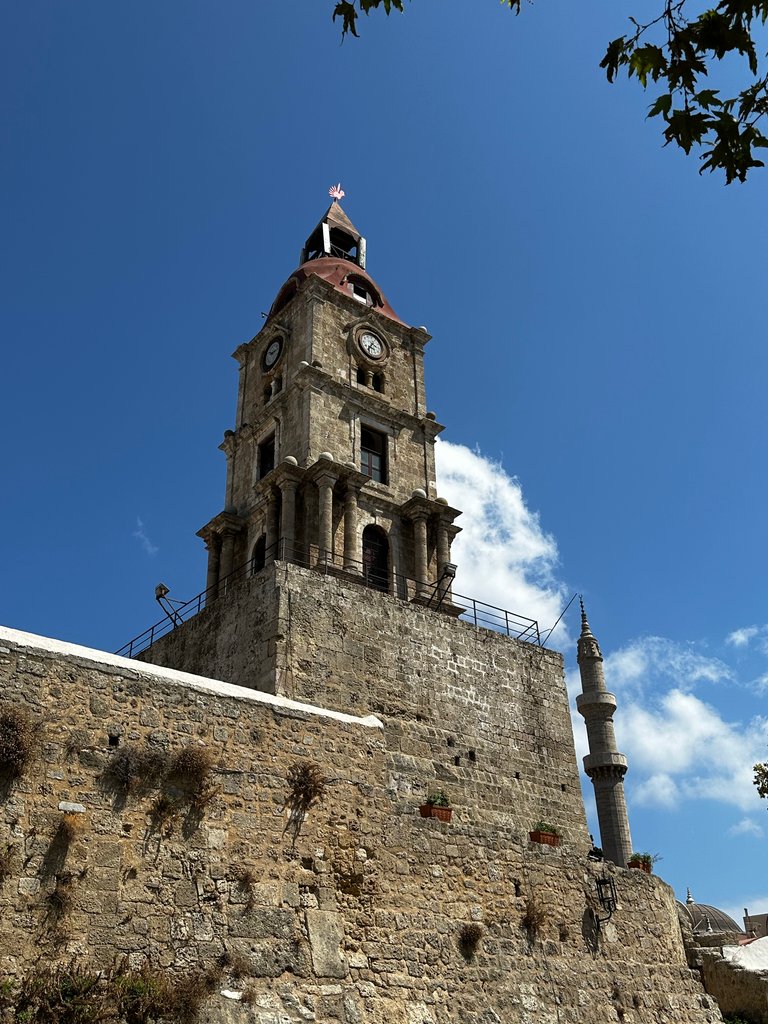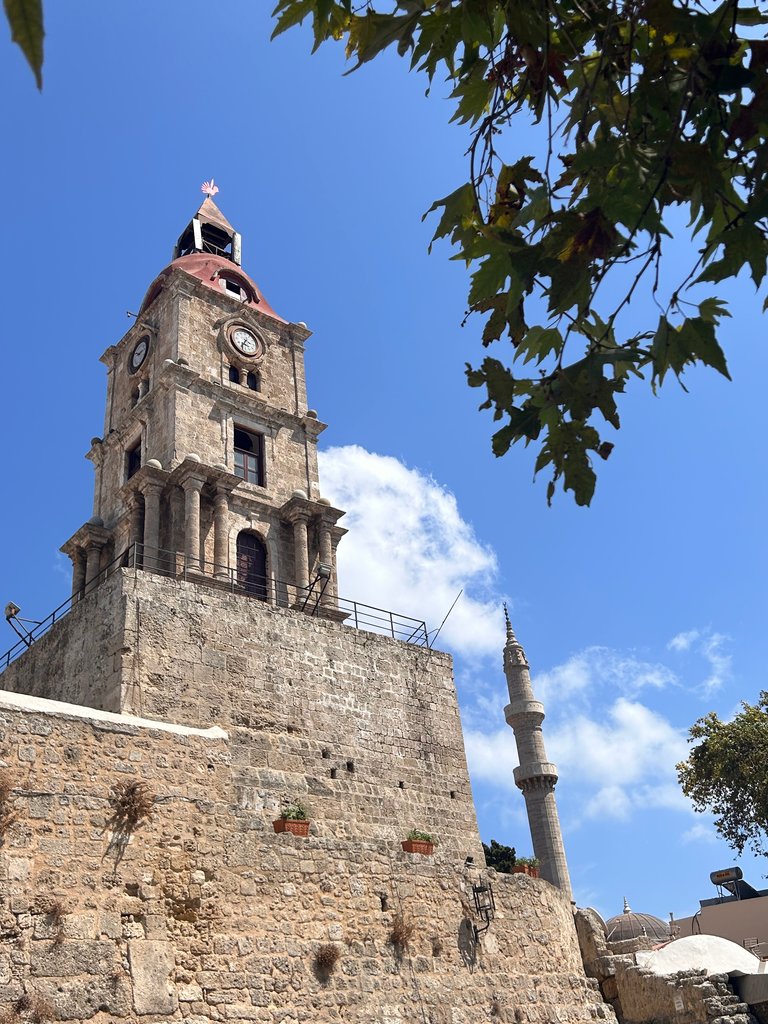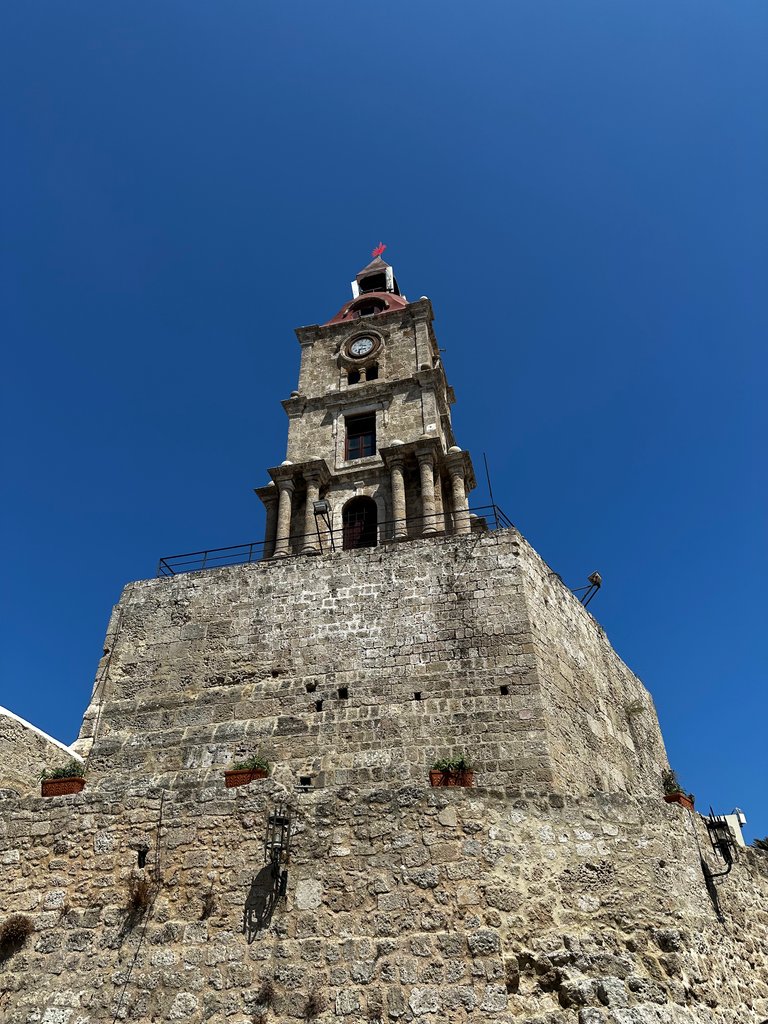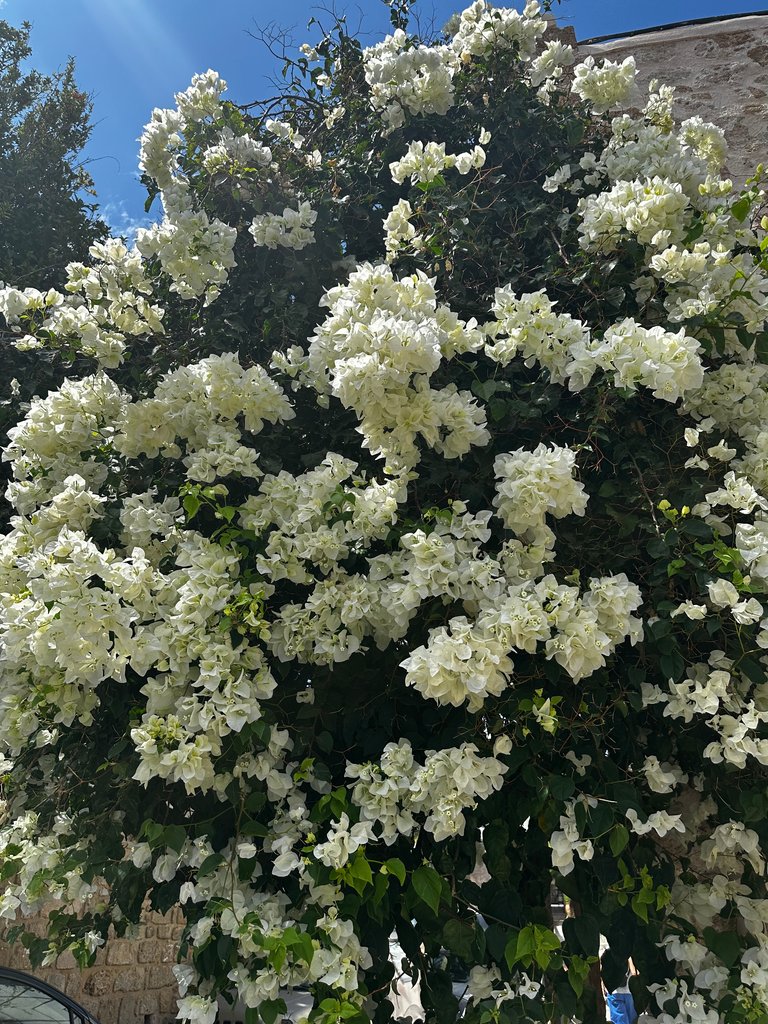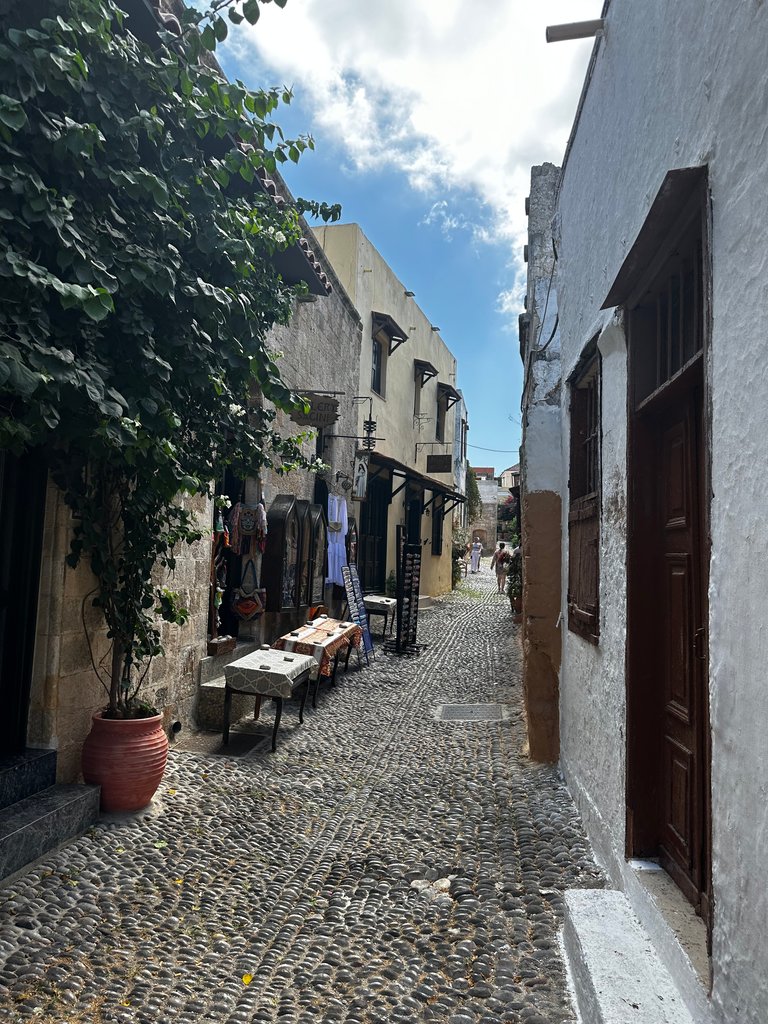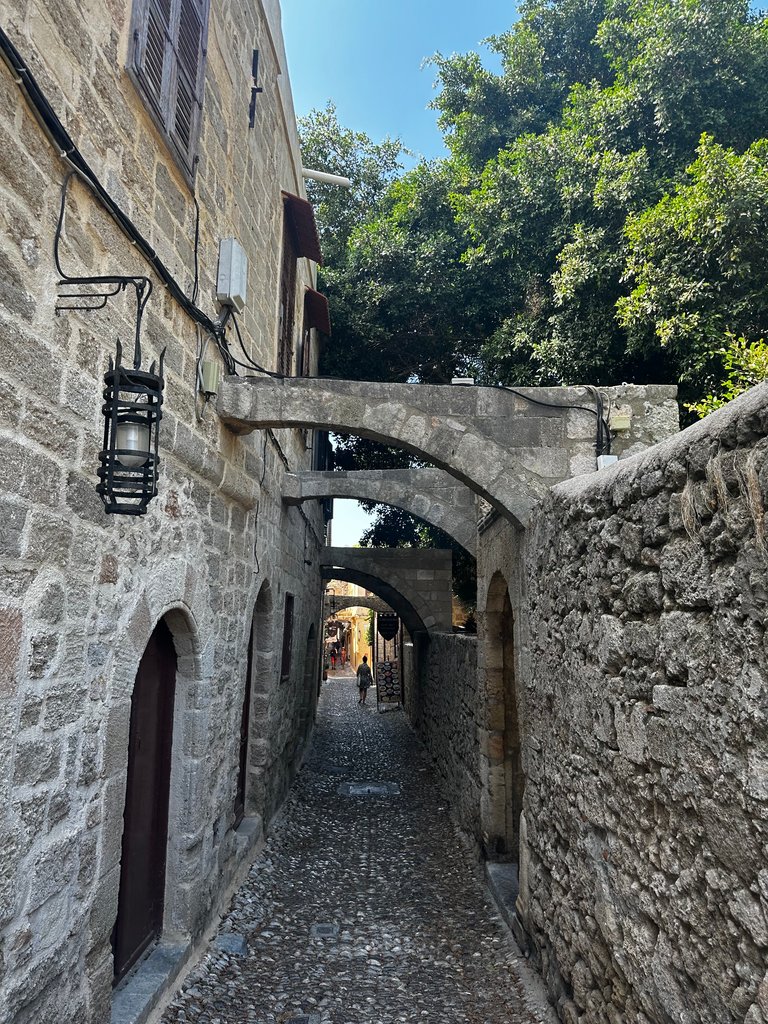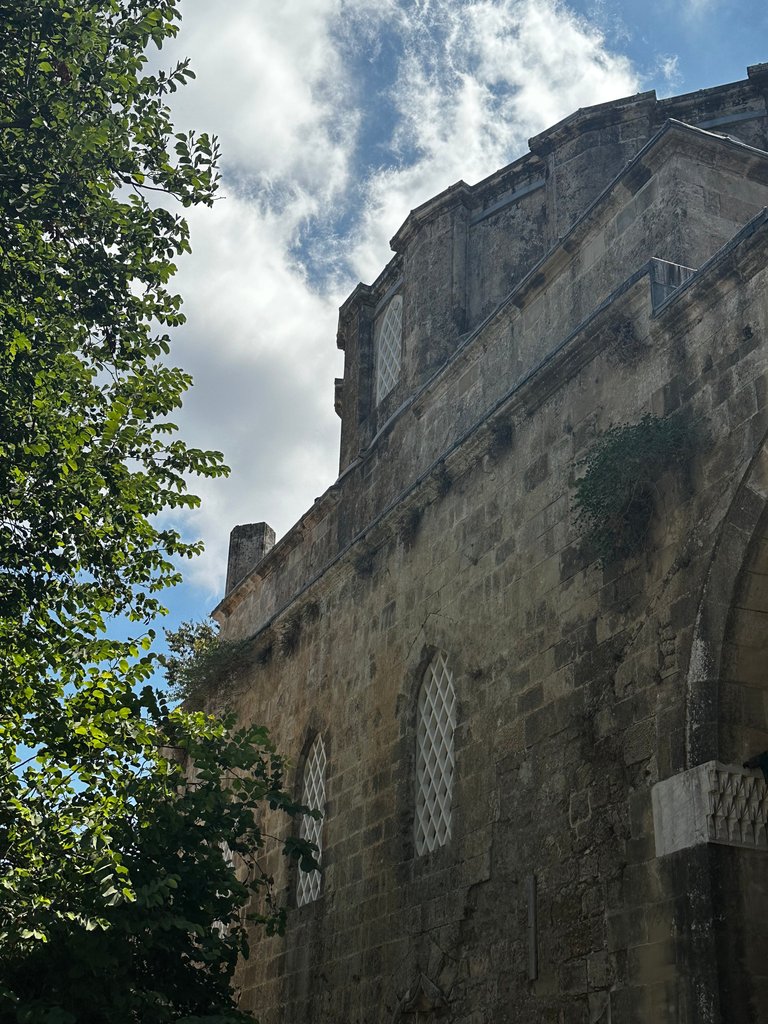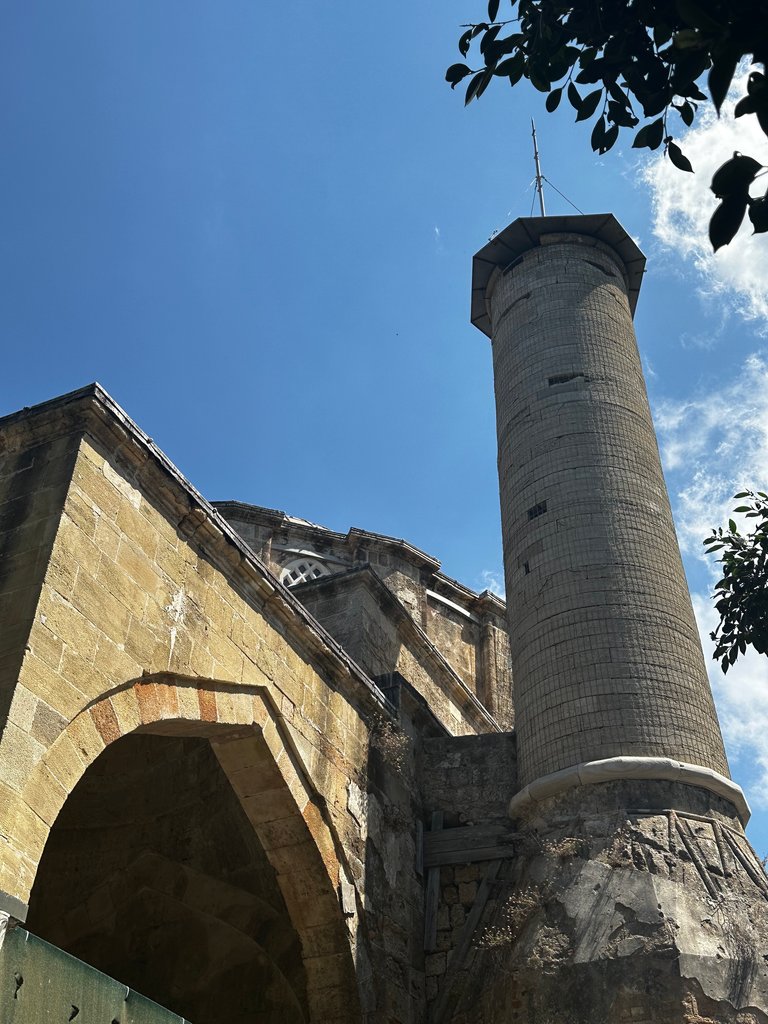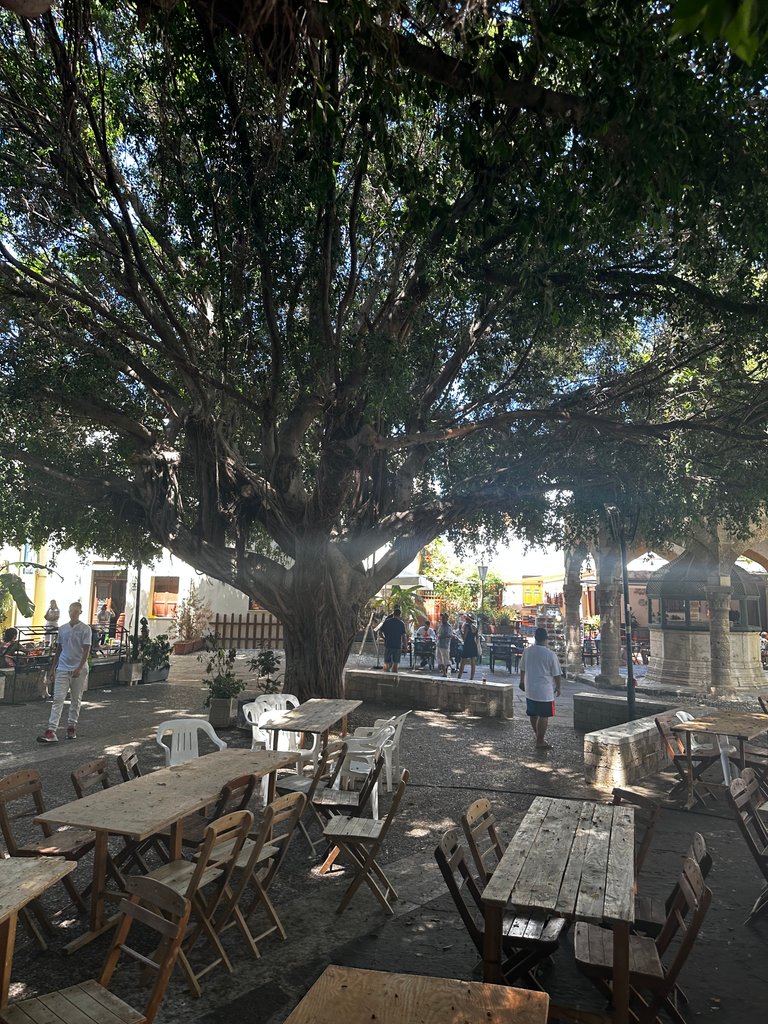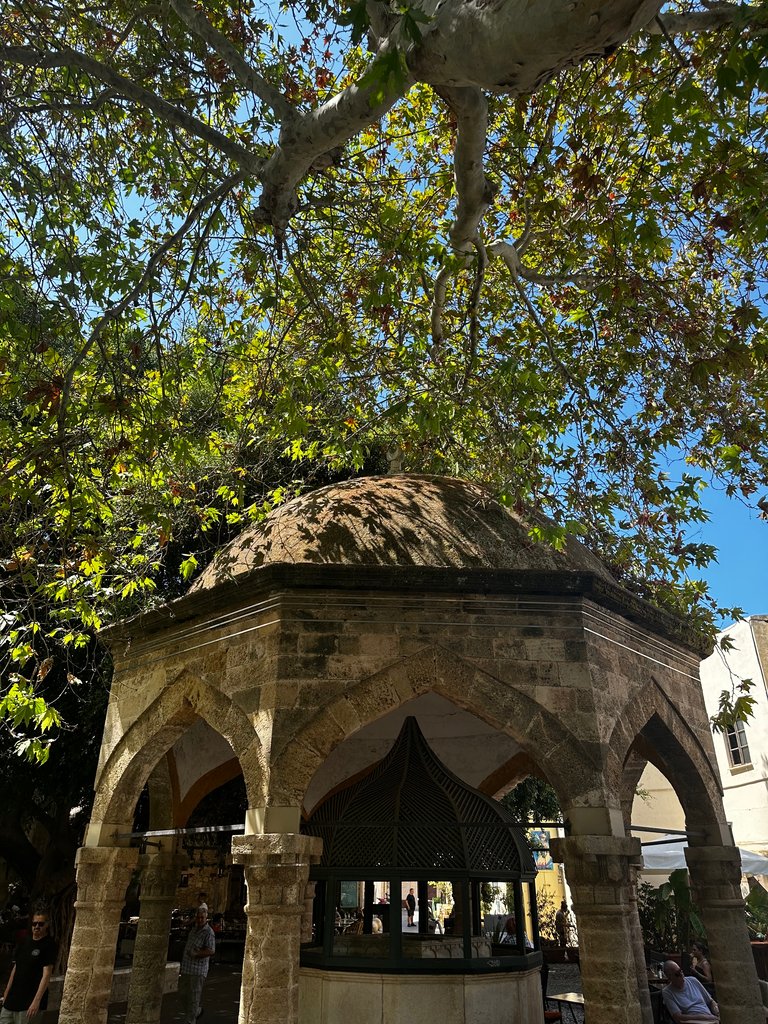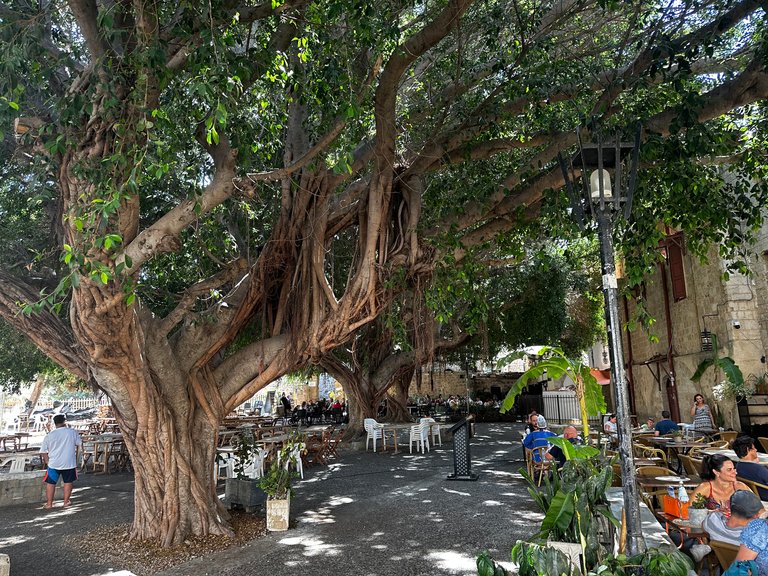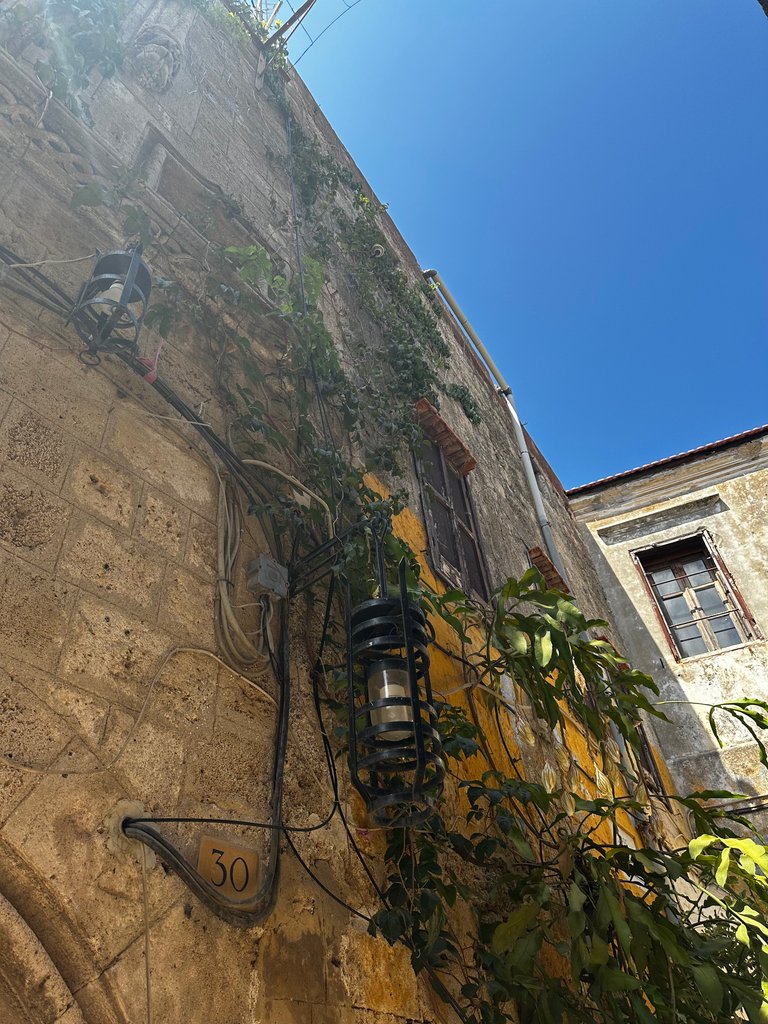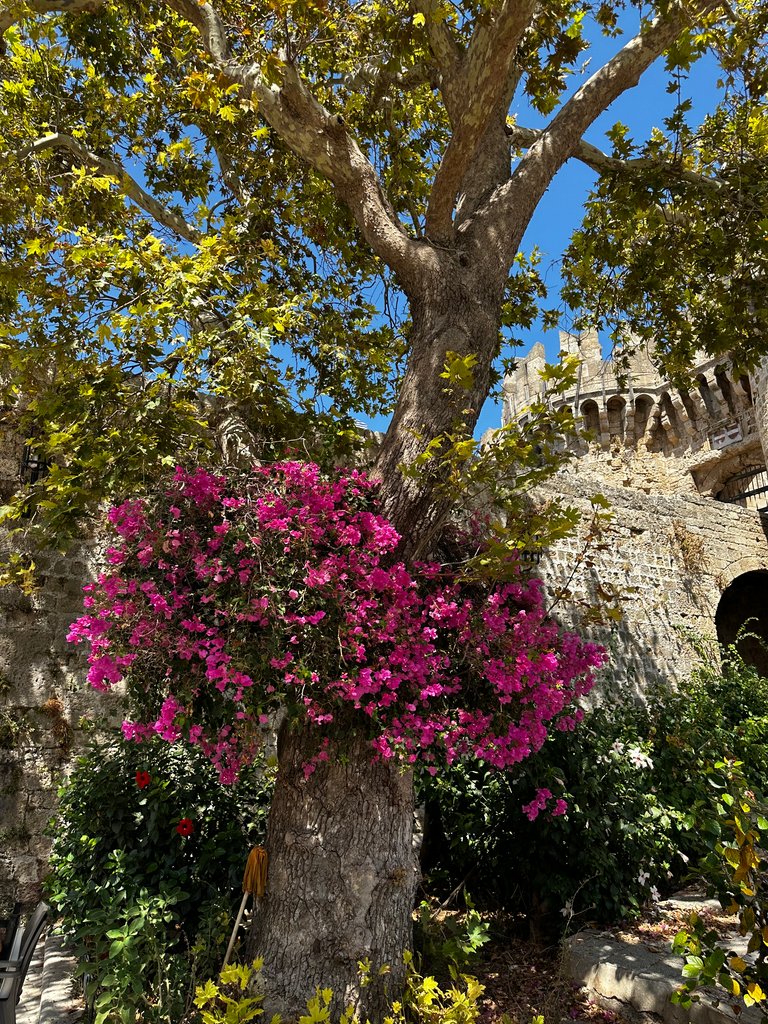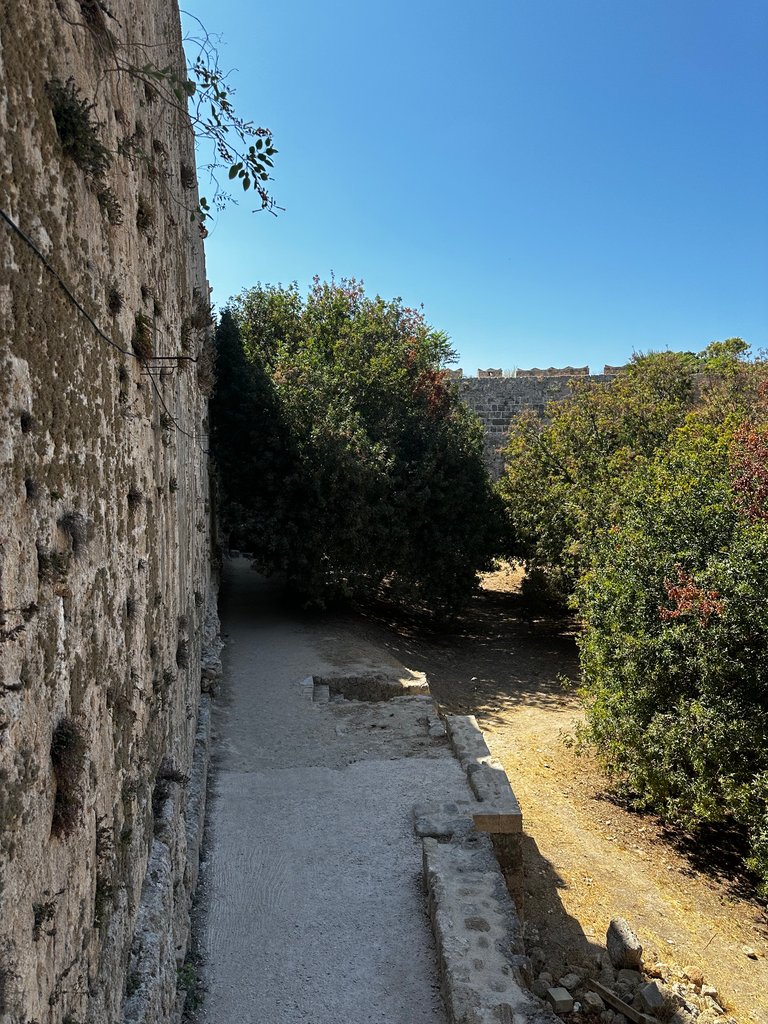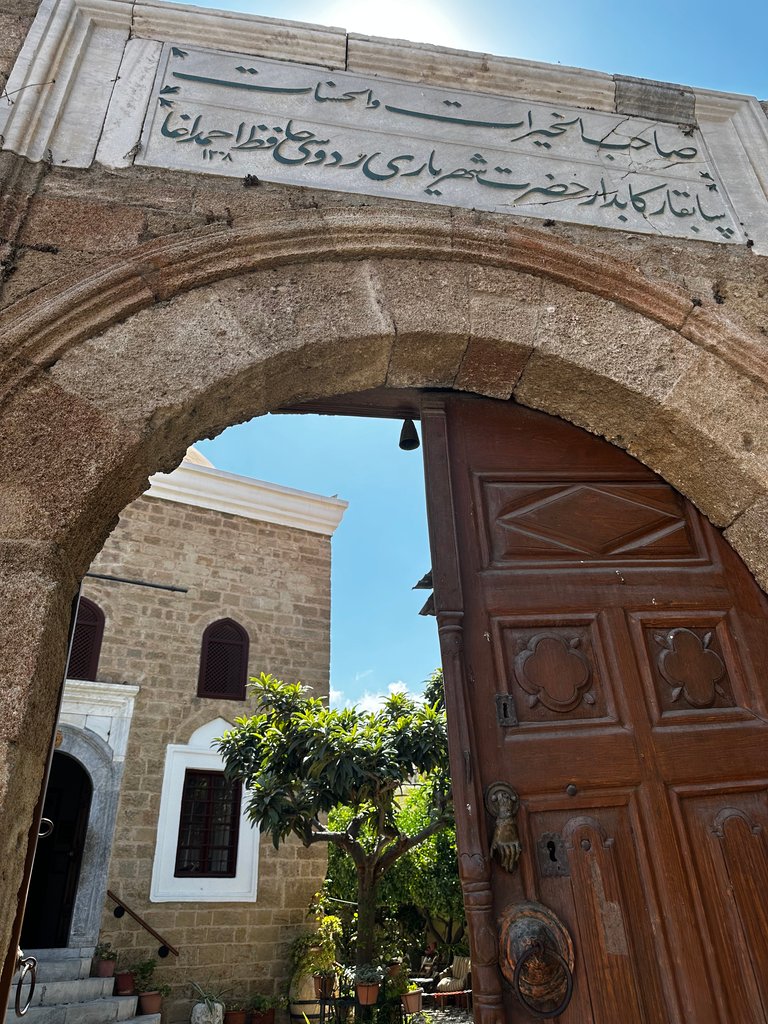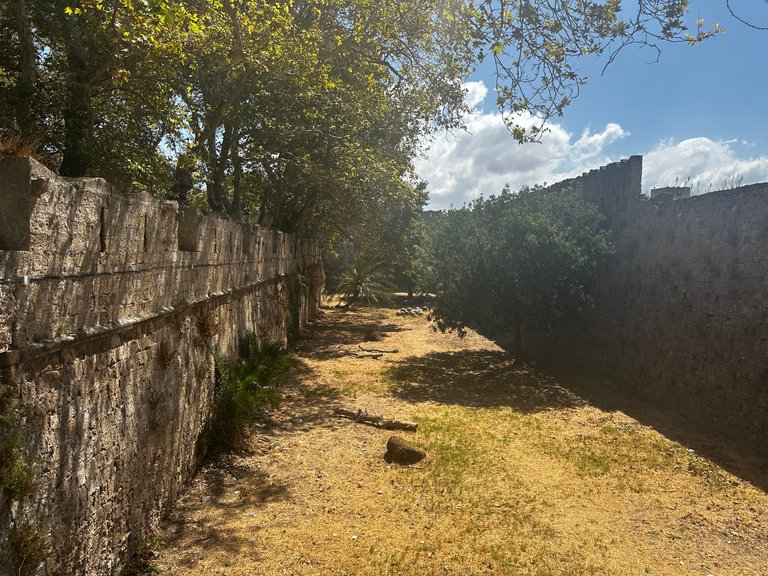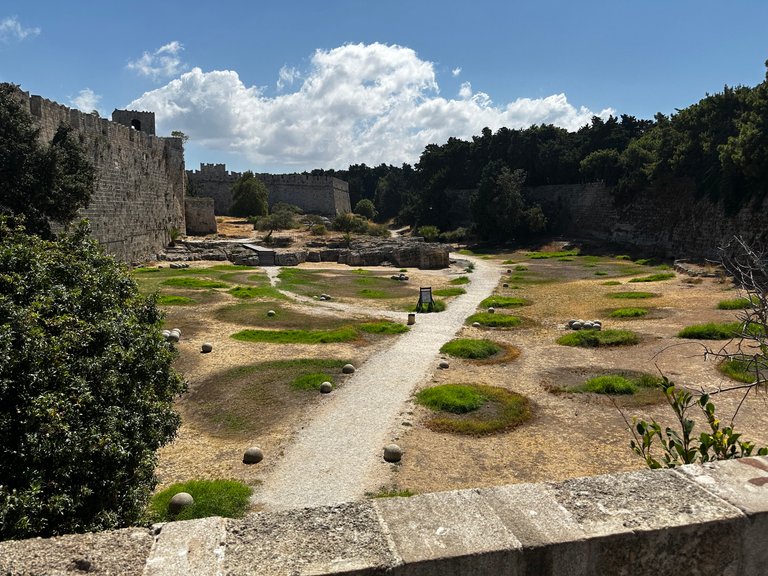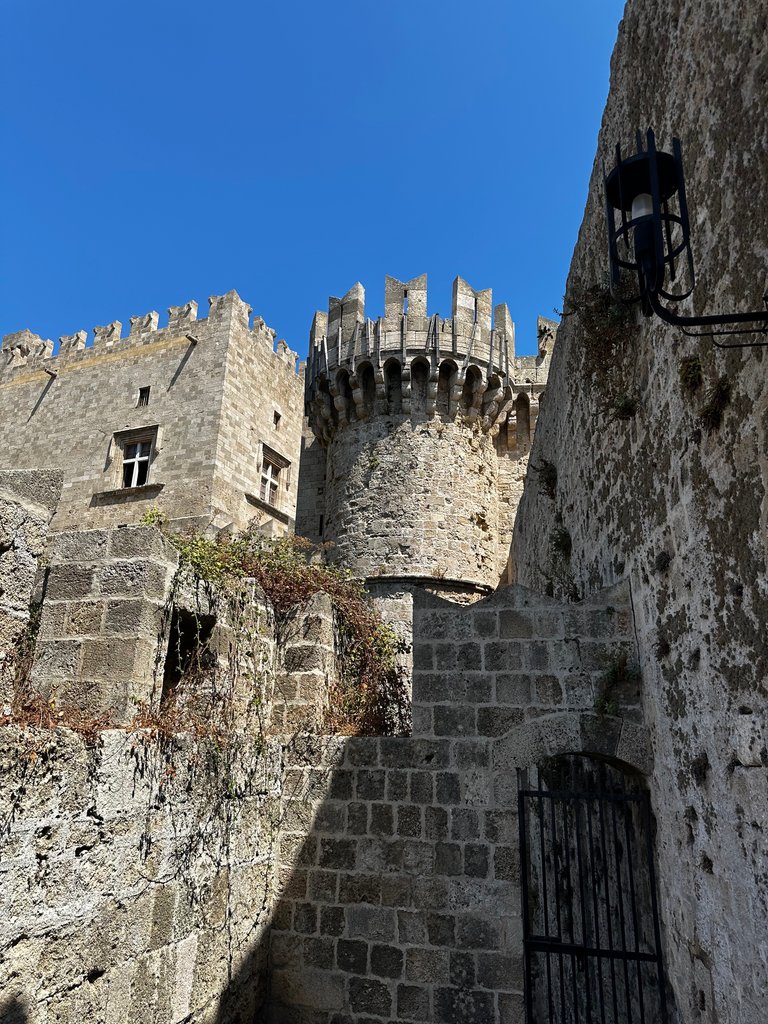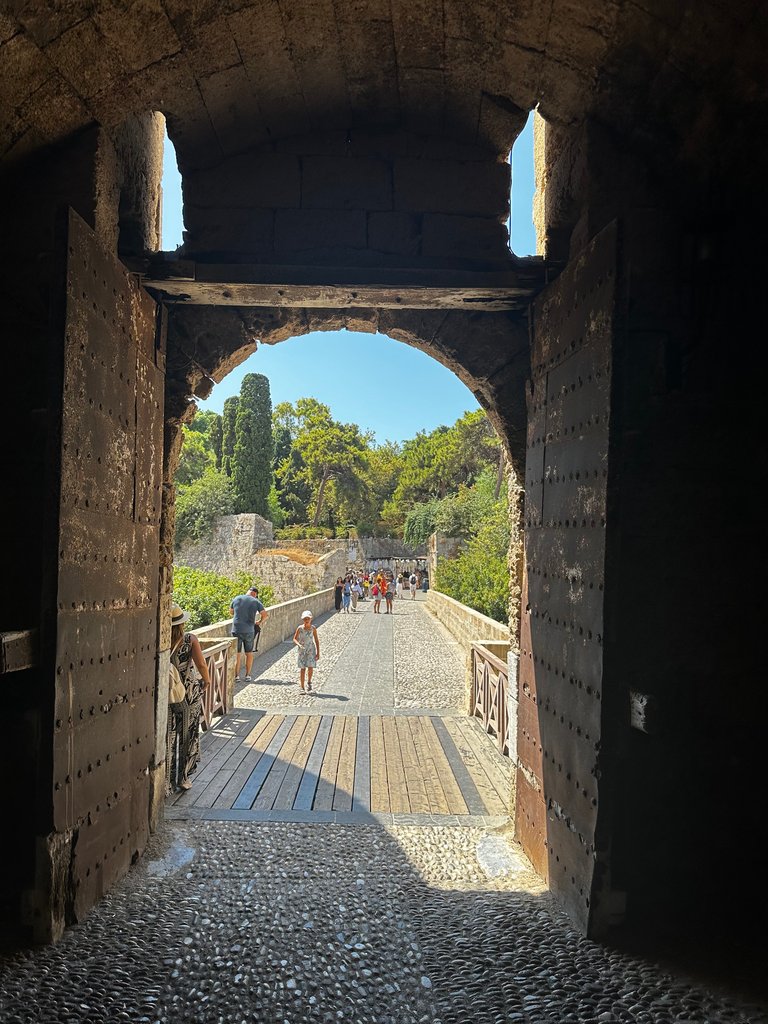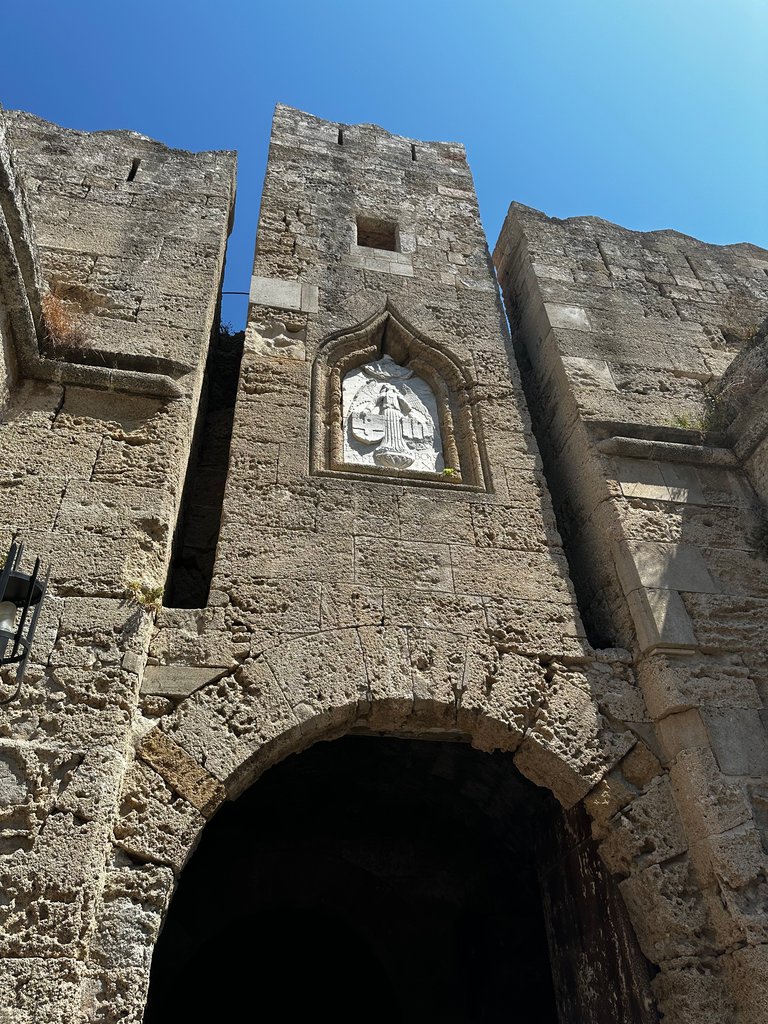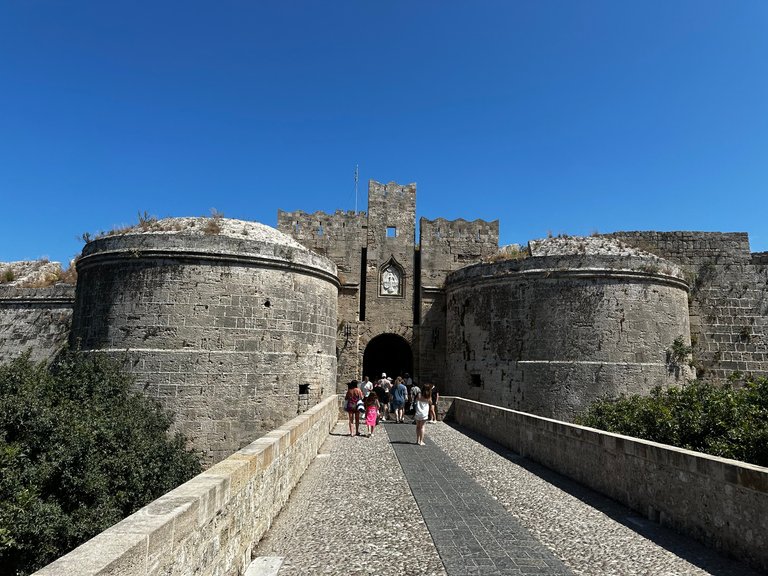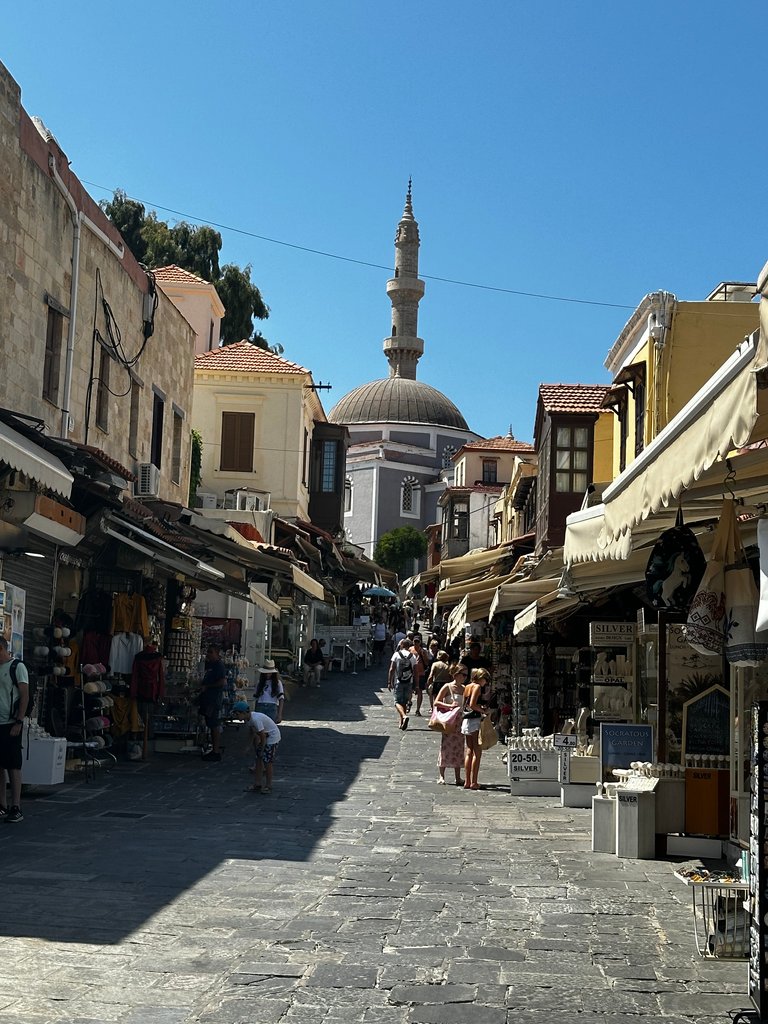
Hallo liebe Community,
nach dem Essensfiasko brahchte uns unser Weg durch einen schöne Einkaufsstraße mit vielen kleinen Souvenirläden direkt auf die Süleyman-Pascha-Moschee zu. Benannt nach dem großen osmanischen Sultan Süleyman dem Prächtigen, ist sie eine der größten und bekanntesten Moscheen der Stadt. Ihre elegante Architektur und die kunstvolle Gestaltung machen sie zu einem beeindruckenden Bauwerk. Wirklich ein Schmuckstück und sehr schön restauriert.
Rhodos Stadt ist ein faszinierender Mix aus verschiedenen Kulturen und Epochen. Die zahlreichen Moscheen geben Zeugnis der Vielfalt, die in der Stadt zu finden ist. Sie erzählen von der osmanischen Herrschaft über die Insel und sind ein wichtiger Bestandteil des kulturellen Erbes Rhodos. Nachdem die Osmanen 1522 Rhodos eroberten, begannen sie mit dem Bau von Moscheen. Diese dienten nicht nur als religiöse Stätten, sondern auch als Zentren des gesellschaftlichen Lebens für die muslimische Bevölkerung. Sie zeugen von einer Zeit, in der verschiedene Kulturen und Religionen friedlich nebeneinander existierten.
Sozusagen direkt nebenan steht auch der große Uhrenturm ( griechisch: Roloi ) von Rhodos Stadt. Der Uhrenturm, in der heutigen Form, wurde 1851 erbaut. Sein Standort ist jedoch viel älter. Er steht auf den Überresten eines Turms, der bereits im 7. Jahrhundert Teil der byzantinischen Stadtmauer war. Im Laufe der Jahrhunderte erlebte der Turm einige Veränderungen und Zerstörungen. So wurde er beispielsweise bei einer Explosion eines Pulverlagers im Jahr 1856 stark beschädigt. Heute ist der Uhrenturm eines der bekanntesten Wahrzeichen von Rhodos. Er befindet sich an einem zentralen Punkt der Altstadt und ist von vielen Seiten aus sichtbar. Von seiner Aussichtsplattform bietet sich ein herrlicher Panoramablick über die Stadt und das Meer. Dass man ihn auch besteigen kann, haben wir aber leider zu spät erfahren, so dass uns dies verwährt geblieben ist. Schade eigentlich, hätte gerne die Aussicht genossen.
Weiter durch die engen Gassen jagt hier sozusagen eine Sehenswürdigkeit die nächste. So kamen wir zur Mustafa Rejep Pascha-Moschee. Sie befindet sich am Dorieus-Platz, in der Nähe der Kirche Agios Fanourios, und wurde im Jahr 1588 errichtet. Die Moschee wurde von Mustafa Rejep Pascha in Auftrag gegeben, wie die Inschrift über dem Eingang verrät. Neben der Moschee wurden zwei weitere, kleinere Bauten errichtet. Die Moschee diente lange Zeit als wichtiger Mittelpunkt für die muslimische Gemeinde in Rhodos und war ein Ort des Gebets, des Lernens und der sozialen Zusammenkünfte. Die Moschee ist ein typischer Vertreter der osmanischen Architektur. Sie zeichnet sich durch ihre klaren Linien, den großen zentralen Kuppelbau und den schlichten, aber dennoch eleganten Stil aus. Leider ist sie durch die Jahre doch schon recht mitgenommen und eine aufwendige Restaurierung würde auch hier gut tun. Trotzdem ist sie auch heute noch ein beeindruckendes Kunstwerk.
Betreten konnten wir die Hafiz Ahmed Aga Bibliothek leider nicht. Nur die osmanische Schrift am Eingangstor fotografieren. Sie ist ein Juwel der osmanischen Architektur und ein wichtiger kultureller Schatz in der Altstadt von Rhodos. Sie befindet sich unweit der Süleyman-Moschee und ist ein Ort der Ruhe und des Wissens. Die Bibliothek wurde im Jahr 1793 von Hafiz Ahmed Aga gegründet, einem einflussreichen Mann, der am Hof des Sultans tätig war. Sie verfügt über eine beeindruckende Sammlung von Büchern und Handschriften, die einen umfassenden Einblick in die islamische Wissenschaft und Kultur bietet.
Und schneller als wir uns versahen, waren wir auch schon unabsichtlich durch einige Torbögen, über den Burggraben und hinaus aus dem alten Stadttor einfach aus der Altstadt heraus spaziert ohne es groß zu merken. Alles etwas unübersichtlich hier durch die vielen kleinen Gassen und Gänge. Aber um so beeindruckender war dann die Ansicht der mächtigen Stadtmauer auf dem Weg zurück in die Altstadt und zum absoluten Highlight des Tages, dem Großmeisterpalast. Aber diesen Stelle ich Euch im nächsten Post vor.
Viele Grüße und bis bald Euer
Al
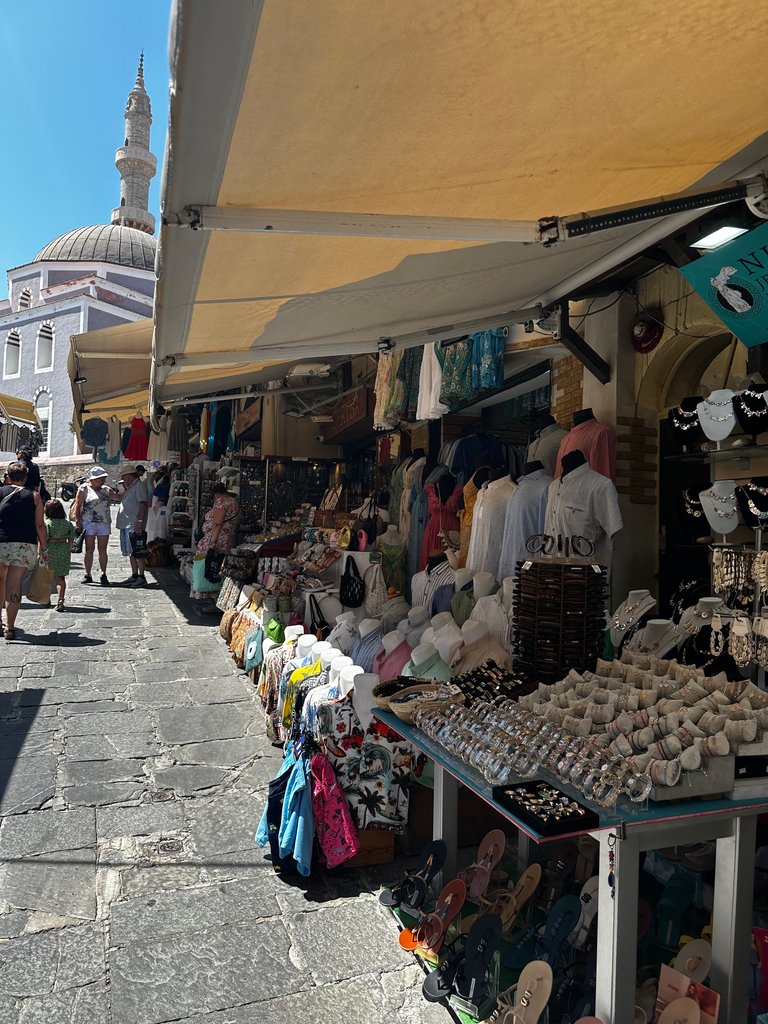
Hello dear community,
after the food fiasco, our path took us through a beautiful shopping street with many small souvenir shops directly to the Süleyman Pasha Mosque. Named after the great Ottoman Sultan Süleyman the Magnificent, it is one of the largest and most famous mosques in the city. Its elegant architecture and artistic design make it an impressive building. Truly a gem and beautifully restored.
Rhodes Town is a fascinating mix of different cultures and eras. The numerous mosques bear witness to the diversity that can be found in the city. They tell of the Ottoman rule over the island and are an important part of Rhodes' cultural heritage. After the Ottomans conquered Rhodes in 1522, they began building mosques. These served not only as religious sites, but also as centers of social life for the Muslim population. They bear witness to a time when different cultures and religions existed peacefully side by side.
Right next door, so to speak, is the large clock tower (Greek: Roloi) of Rhodes Town. The clock tower, in its current form, was built in 1851. However, its location is much older. It stands on the remains of a tower that was part of the Byzantine city wall as early as the 7th century. Over the centuries, the tower has undergone several changes and destructions. For example, it was badly damaged in an explosion of a gunpowder depot in 1856. Today, the clock tower is one of the most famous landmarks in Rhodes. It is located at a central point in the old town and is visible from many sides. From its viewing platform, there is a wonderful panoramic view of the city and the sea. Unfortunately, we found out too late that you can climb it, so we were denied this. It's a shame, actually, I would have loved to enjoy the view.
Continuing through the narrow streets, one sight follows the next, so to speak. This is how we came to the Mustafa Rejep Pasha Mosque. It is located on Dorieus Square, near the church of Agios Fanourios, and was built in 1588. The mosque was commissioned by Mustafa Rejep Pasha, as the inscription above the entrance reveals. Two other, smaller buildings were built next to the mosque. The mosque served for a long time as an important center for the Muslim community in Rhodes and was a place of prayer, learning and social gatherings. The mosque is a typical example of Ottoman architecture. It is characterized by its clear lines, the large central dome and the simple but elegant style. Unfortunately, it has become quite worn over the years and an extensive restoration would do good here too. Nevertheless, it is still an impressive work of art today.
Unfortunately, we were not able to enter the Hafiz Ahmed Aga Library. We were only able to photograph the Ottoman writing on the entrance gate. It is a jewel of Ottoman architecture and an important cultural treasure in the old town of Rhodes. It is located not far from the Suleyman Mosque and is a place of peace and knowledge. The library was founded in 1793 by Hafiz Ahmed Aga, an influential man who worked at the Sultan's court. It has an impressive collection of books and manuscripts that offer a comprehensive insight into Islamic science and culture.
And faster than we knew it, we had already inadvertently walked through some archways, over the moat and out of the old city gate, simply out of the old town without really noticing. Everything is a bit confusing here with all the small alleys and passageways. But the view of the mighty city wall on the way back to the old town and to the absolute highlight of the day, the Grand Master's Palace, was all the more impressive. But I'll introduce this to you in the next post.
Best wishes and see you soon, your
Al
